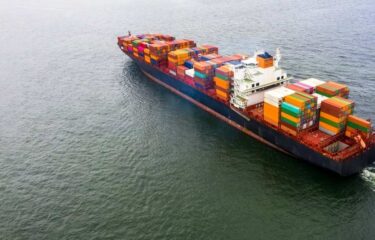
Blog
Industry
6 min read
4 Feb 2022


Blog
Industry
6 min read
4 Feb 2022

The modern world features a more complex and interconnected network of businesses trading internationally than has ever been seen before. And it’s arguable that this very feature of modern global economics has been a key driver in global trade’s journey towards being ever-more efficient from a consumer perspective.
However, the global nature of our supply chains also exposes businesses to new risks and challenges that must be conquered. And, worse still, these supply chain risks, thanks to their global scale, can have disastrous ripple effects when they come to fruition.
In 2020, we saw the Coronavirus pandemic ravage supply chains. Across the entire global economy, manufacturers were crippled, suppliers left unable to fulfil orders, and buyers left without adequate stock. This was a timely event – displaying some of the most critical challenges modern supply chains present when times of crisis hit.
Potential supply-side catastrophes aren’t the only challenge that global supply chains present, though. Even when operating under normal conditions, these giant supply chains are complicated, challenging, and delicate – requiring consistent, concerted effort and solid mitigation strategy planning before they run efficiently.
Understanding and planning ahead to beat these potential global supply chain challenges when they occur should be near the top of any businesses’ priority list, but where do you begin?
The first step is to build your knowledge. To be prepared to overcome the potential challenges that global supply chains present, you first must understand them. While not exhaustive, these are some of the top challenges to be aware of:
So, with a rough understanding of what the primary challenges that global supply chains present are, it’s time to talk about what you can do to prepare for and mitigate against them. In short, the best way to strengthen your global supply chain and ensure it is strong enough to overcome the challenges it faces revolve around two core features – its resiliency and its efficiency.
Supply chain resilience is the term used to describe how robustly your supply chain can hold up against threats becoming reality. A resilient supply chain will be less affected by crises than a weak one, meaning that typical business operations can continue sooner, and revenue is less at risk.
There are a broad range of ways you can make your supply chain more resilient, but the key ones include:
Supply chain efficiency, on the other hand, is less focused on preparing for disaster and more about making the most of your global supply chain when everything is going well. An efficient supply chain will be more capable of conquering the everyday challenges that global supply chains present. Ways of making your global supply chain more efficient include:
Overcoming the issues and challenges that a global supply chain presents isn’t easy, but it’s made significantly easier when you have software on your side to help with the task of increasing resilience and efficiency.
Taulia offers a suite of solutions that can make every stage of the procurement process easier to manage and more efficient, from supplier management software to an AP automation platform.